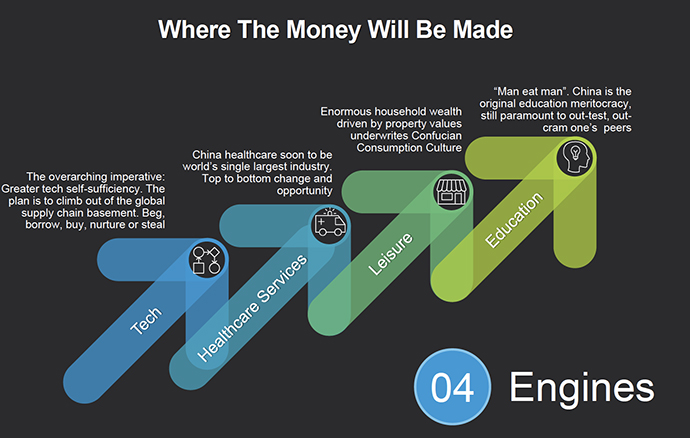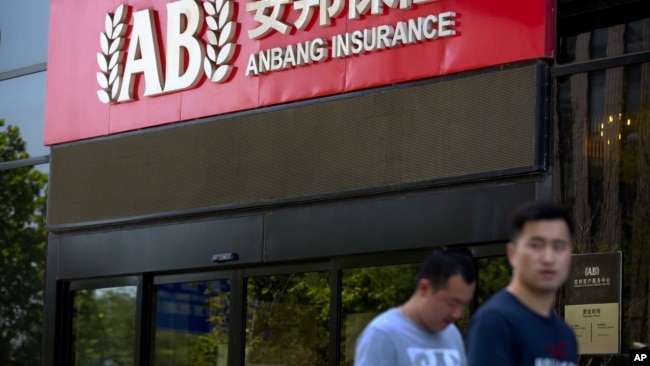“The Tough Battle to Bring Western Brands to China” the Financial Times

When John Zhao sealed the £900m takeover of the UK’s PizzaExpress in 2014 he burnished his reputation as a pioneer in China’s private equity industry. Two years later Hony Capital, his buyout firm, ploughed money into WeWork as the New York shared-office provider set its sights on an aggressive expansion in China.
Both deals shared a simple premise: take well-known western brands to China and they will flourish. “We have capital; we have a huge market to give access to,” Mr Zhao said shortly after the capture of PizzaExpress, which set a record for a Chinese buyout deal in the UK.
The acquisition was one of a wave of Chinese private equity investments over the past decade but few firms were as ambitious as Hony in their targets. Spun out of state-backed Legend Holdings in 2003, Hony shot to prominence through a series of restructurings of other state-owned groups. As it grew, so did its appetite for higher-profile, cross-border investments.
However, almost two decades on, Hony’s breezy confidence that China’s increasingly wealthy middle class would be ready-made consumers of all western brands has proved misplaced.
PizzaExpress restaurant openings in China have lagged behind an ambitious goal while local, lowercost competitors have lured customers away. Confidence that middle class would eat up imported names such as PizzaExpress prove misplaced.
This lacklustre start in China, combined with rising costs and a slowing casual dining market in the UK, left PizzaExpress with a £1.1bn debt pile that has set the scene for a restructuring battle between Hony and other bondholders.
After a calamitous 2019 in which WeWork was rescued by Japan’s SoftBank, its biggest backer, the New York-based company has ditched its leasing model in many cities, laid off thousands of staff and struggled with a particularly poor performance in China.
“The ‘can’t-miss’ strategy continues to do just that,” said Peter Fuhrman, chairman and chief executive at Shenzhen-based investment bank China First Capital. “Chinese investors and corporates have mainly fizzled when buying and localising western consumer brands.”
Other Hony investments — including the Beijing-based bike-sharing business Ofo, which collapsed in late 2018 — have soured, causing competitors to rethink importing western brands to China.
Chinese business history is littered with cases of western multinationals making the opposite mistake. UK retailer Marks and Spencer closed its Shanghai stores in 2017 after its combination of clothing and imported food confused local shoppers. US electronics retailer Best Buy retreated from China in 2014 after struggling to compete with cheaper domestic competitors.
But Chinese private equity groups appeared undeterred. They raised $230bn of capital between 2009 and 2014, according to investment bank DC Advisory.

Nanjing-based Sanpower largely flopped with its buyout of high-end retailer House of Fraser in 2014 and its failed attempt to expand the UK retailer across China. Bright Food, the state-owned Chinese group that bought a 60 per cent stake in Weetabix in 2012, failed to make the UK breakfast dish popular in China and eventually had to sell the brand in 2017.
“Four years ago everyone thought [buying foreign brands and bringing them to China] was the best thesis — but a lot of people got burnt,” said Kiki Yang, the partner leading Bain & Co’s Greater China private equity practice. “It’s not easy to bring something with no brand awareness to China. In reality, the success rate is very low.”
People who know Mr Zhao have said he was one of the first serious Chinese investors to have a solid grounding in the way deals were done in the US while also enjoying deep ties to state-owned groups, putting him in an enviable position at the advent of the Chinese private equity industry.
In its early days, that helped Hony become a rare channel connecting investors such as Goldman Sachs and Singapore’s Temasek with lucrative state deals that were otherwise inaccessible to foreign capital.
The PizzaExpress deal was a turning point for Hony and
other investors in the sector.
By 2014, the group had completed several successful cross-border deals, including an investment in Italian concrete producer Cifa. But the takeover of a popular British restaurant chain won instant global attention for Hony and Mr Zhao, who had spent most of the 1990s working at Silicon Valley technology companies such as Vadem and Infolio.
Hony’s investment in PizzaExpress came just as the UK’s casual dining market began to suffer from oversupply. It was also beginning to face stronger competition from local restaurants in China, a sign the UK brand name meant little to many Chinese diners.
PizzaExpress originally intended to open 200 outlets over a five-year period. So far it has launched about a dozen restaurants in the mainland, giving it a total of about 38, according to its website. In its annual results in April, the chain admitted it had “experienced challenges in China as we face intensifying competition from local brands”.
Without the promised growth in China to cushion the decline in the UK market, PizzaExpress has been pushed towards a debt restructuring process, cementing the deal’s position as an emblem of troubled Chinese investments overseas.

“Every time you say ‘China cross-border’, people think of PizzaExpress,” said one senior Chinese private equity executive. “It’s become a laughing stock — and bad for the reputation of China PE.”
PizzaExpress, Mr Zhao and Hony declined to comment.
As it seeks to resolve PizzaExpress’s problems, WeWork’s near collapse has inflicted further damage on Hony’s reputation. Hony and Legend Holdings led a $430m investment round in WeWork in 2016, and Mr Zhao became a member of WeWork’s board and later a consultant to its China business. SoftBank and Hony led a $500m investment round a year later.
With Mr Zhao acting as a consultant, WeWork expanded aggressively across the country, buying Chinese rival Naked Hub for $480m in cash and stock in 2018. Yet demand for office space fell in 2019, leaving some of its new areas of business virtually empty.
For example, in the western Chinese city of Xi’an, nearly 80 per cent of its desks were vacant, the FT reported in October. In the bustling start-up hub of Shenzhen in southern China, 65 per cent of its 8,000 desks were vacant.
WeWork declined to comment.
The poor performance of the business in China has left investors questioning how one of China’s private equity superstars could lead the group so far off course, according to people familiar with the matter.
“My impression is that Hony is not doing well these days,” said Liu Jing, a professor of accounting and finance at Cheung Kong Graduate School of Business in Beijing. “The economy has shifted to technology and they have lost their edge.”
https://www.ft.com/content/f735c956-15b6-11ea-9ee4-11f260415385





























